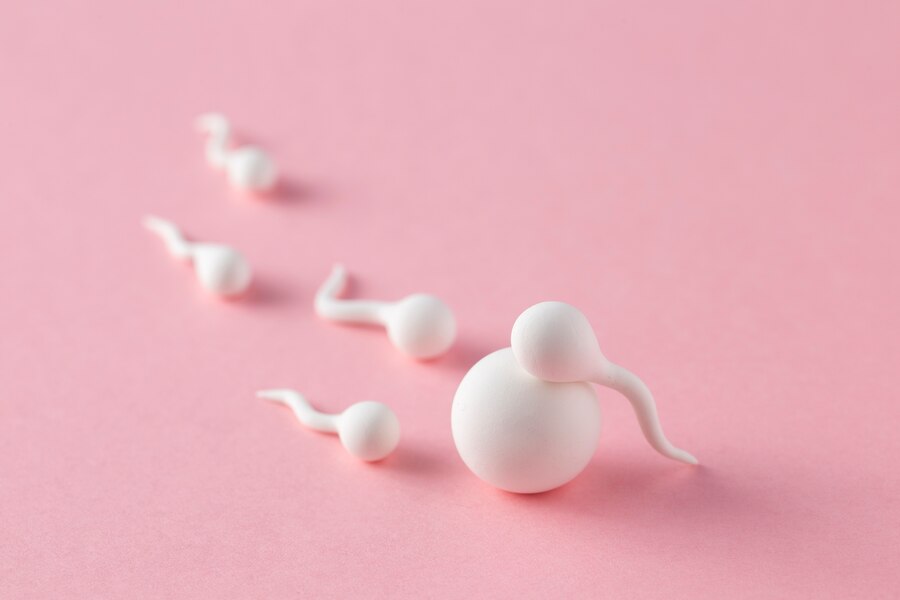Ever dreamt of building a family, but facing roadblocks on the path to parenthood? You’re not alone. Sometimes, despite our best efforts, getting pregnant doesn’t happen as easily as planned. This blog sheds light on infertility, a common challenge for both men and women. We’ll break the silence, answer your questions, and offer support on this sometimes-confusing journey.
Infertility Explained: A Hurdle in the Baby-Making Race
Infertility simply means a couple is unable to conceive a child after one year of trying (or six months with women over 35). It can be a frustrating and emotional experience, but remember, there’s help available. Did you know? Around 1 in 7 couples experience infertility at some point.

Understanding the Male Side of the Coin
Men play a vital role in conception, and male infertility is just as common as female infertility. Here’s a breakdown of some reasons why men might face challenges:
Sperm Issues: The quality and quantity of sperm can affect fertility. Low sperm count, abnormal sperm shape, or poor sperm movement can all make it difficult for sperm to reach and fertilize an egg.
Health Conditions: Medical conditions like varicocele (enlarged veins in the scrotum) or hormonal imbalances can impact sperm production.
Lifestyle Choices: Smoking, excessive alcohol consumption, and certain medications can also affect sperm health.
The Female Fertility Landscape
The female body is a complex and amazing baby-making machine. However, various factors can affect a woman’s ability to conceive:
Ovulation Problems: Ovulation is the release of an egg from the ovary. Irregular or absent ovulation can make it difficult for pregnancy to occur.
Blocked Fallopian Tubes: These tubes connect the ovaries to the uterus. Blockages can prevent the egg and sperm from meeting.
Uterine Issues: Fibroids (growths in the uterus) or problems with the uterine lining can hinder implantation (the embryo attaching to the uterus).
Endometriosis: This condition causes tissue similar to the uterine lining to grow outside the uterus, which can affect fertility.
Age: A woman’s fertility naturally declines with age, especially after 35.
Beyond Biology: Unveiling Other Causes
Infertility can sometimes have less obvious causes:
Stress: Chronic stress can disrupt hormones and affect fertility in both men and women.
Environmental Factors: Exposure to certain toxins or environmental hazards can affect sperm health and egg quality.
Weight Issues: Being significantly underweight or overweight can impact fertility.
Diagnosis and Treatment: Getting the Right Help
If you’ve been trying to conceive for a while without success, don’t hesitate to seek medical advice. Your doctor can perform tests to identify any underlying causes of infertility.
Here are some common treatment options:
Medications: Hormonal medications can help regulate ovulation or stimulate sperm production.
Surgery: Surgery might be an option to address blockages in the fallopian tubes or correct certain uterine problems.
Assisted Reproductive Technologies (ART): These procedures, like IVF (In Vitro Fertilization), help sperm and egg meet outside the body, creating embryos for implantation.
Remember, You’re Not Alone: Finding Support on Your Journey
Infertility can be emotionally challenging. Here are some resources for support:
Talk to Your Doctor: They can be a source of information, guidance, and emotional support.
Support Groups: Connecting with others who understand your struggles can be incredibly helpful.
Online Resources: There are many online communities where you can connect with others facing infertility.
The Road to Parenthood: Hope and Encouragement
While infertility can be a hurdle, remember there are many paths to parenthood. With proper diagnosis, treatment, and support, many couples facing infertility are able to conceive and build their families. Don’t be afraid to seek help, stay positive, and believe in your journey towards parenthood.

